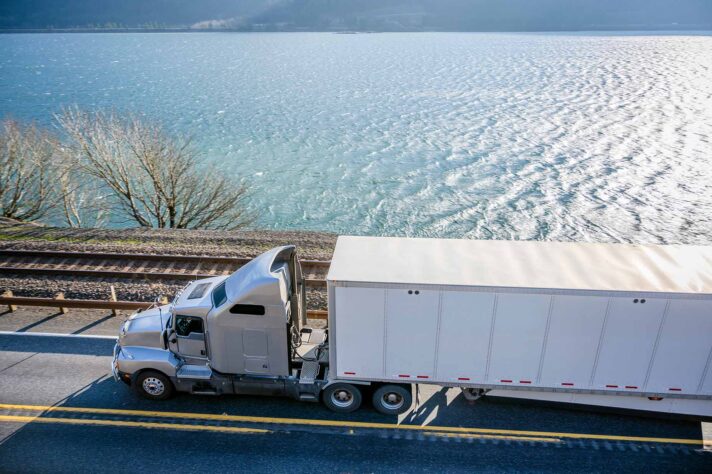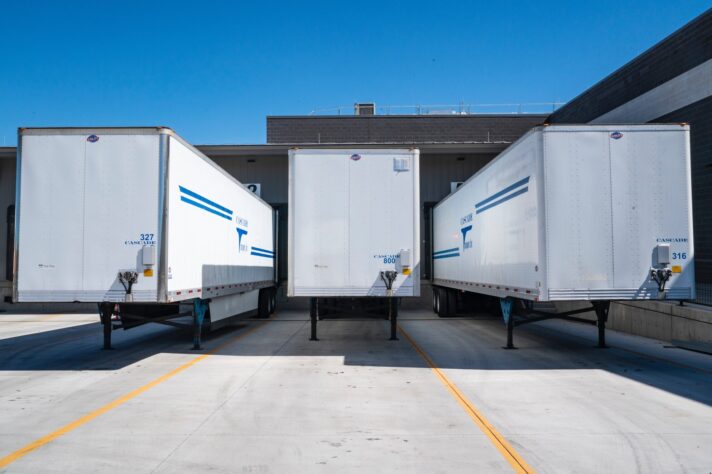When planning the relocation across the country, start by setting a relocation budget and timeline. Research and hire a reliable company, gather necessary supplies, and sort through the belongings to lighten the load. Make sure that the new residence is ready for your arrival, and unbox the possessions systematically after they reach you.
How to Plan a Cross-Country Move – A Comprehensive Guide
Moving cross-country can be overwhelming. The key to a smooth relocation lies in careful organization and good strategizing. When considering how to plan a cross-country move, factors such as budgeting, hiring the right company, and setting a comprehensive timeline can make all the difference. That’s why this guide aims to simplify this process, offering practical steps and advice that will ensure an efficient and stress-free transition.


How Many Americans Regret Not Thinking Through Their Relocation Plan?
In the past three years, approximately 36% of Americans have relocated. Of those who’ve moved recently, 20% regret their decision. A common reason for such remorse is not thinking through their relocation plan properly. Even though many appreciate the ease that cross-country movers provide, 55% of Americans opted to forgo their services. Of these DIY movers, nearly a quarter later wished they had hired experts for the task.
Why Proper Planning Is Crucial for a Cross-Country Move
Every relocation is a big deal, and it usually represents much more than just a change of address. There are financial concerns to think about, as relocation costs can add up quickly. Emotional factors, such as leaving the familiar behind, play a part too. Moreover, adapting to a new place and surroundings takes time.
Then there’s the logistics and complex coordination of the journey across the state. With the safety of your belongings at stake, the choice of a reputable long-distance moving company matters more than ever. Professionals will ensure that the relocation is a smooth and stress-free experience. They will handle all the details and reduce your anxiety about moving out. So, plan and hire the movers on time. It will make all the difference.


Comprehensive Budgeting Will Ensure a Smooth and Economically Efficient Relocation
The first step when planning a relocation is setting a detailed relocation budget. Understanding the various costs involved can save you from financial strain and relocation stress. Moreover, by outlining and anticipating these expenses in advance, you ensure a stable and financially secure relocation experience.
Thoughtful Budgeting Will Make Relocation a Breeze
You should know that saving money during this process is a top priority for many. That’s why by outlining anticipated expenses, you reduce the chances of being surprised and financially unprepared. Proactive budgeting helps you identify areas where you can cut costs, allowing you to allocate funds effectively.


Start Planning a Cross-Country Move by Creating a Realistic Moving Timeline
Time can either be your ally or adversary. However, crafting a realistic relocation timeline is about more than just setting random dates and checkpoints. It’s about pacing yourself to ensure that every task, big or small, gets the attention it deserves. Proper time management prevents last-minute scrambles and reduces the pressure associated with such significant transitions.
Don’t Forget to List Tasks By Priority
While each activity is essential, some are more time-sensitive or critical than others. Prioritizing tasks ensures that you tackle the most pressing concerns first, guaranteeing that nothing falls through the cracks.


Research and Book the Right Cross-Country Moving Company on Time
Keep in mind that successful long-distance relocation requires a lot of work, and while legitimate companies minimize the potential for relocation mistakes, they still exist. One way to verify a company’s credibility is by checking its status with organizations like the Federal Motor Carrier Safety Administration (FMCSA) and the Better Business Bureau (BBB).
Ensuring that the cross-country moving service you select is licensed and insured through such authorities not only safeguards against relocation scams and potential liabilities but also provides peace of mind. Insurance, on the other hand, ensures that in the unlikely event of damage or loss, you’re insured accordingly and not left bearing the burden financially.
Prepare the List of Questions to Ask Long-Distance Movers
Before you finalize the decision, it’s crucial to engage with potential movers directly. Asking the right questions can provide clarity and ensure that the company aligns with your specific needs. Furthermore, by arming yourself with the right information, you can ensure a well-informed decision that will pave the way for a stress-free relocation experience.


Lighten the Load and Gather Necessary Supplies for an Efficient Packing Process
Streamlining belongings can significantly enhance the efficiency of the relocation and boxing-up process. Begin with downsizing for a move by tackling one room at a time. Discarding, selling, or donating items you no longer need will minimize the load and help you reduce relocation costs. This will even simplify the settling and unpacking process after the move.
However, the foundation of a successful transition lies in the quality of the packing materials used. The right supplies can shield your belongings throughout shipping from potential damage. Here’s a list of different packing materials and their importance in making the relocation safe:
- Cardboard boxes offer protection to items, preventing crashes, especially when stacked.
- Bubble wrap acts as a cushion while absorbing shocks and preventing breakages.
- Sturdy tape ensures boxes remain sealed, safeguarding the contents from external elements.
- Markers and labels for labeling boxes ensure easy identification of contents and facilitate a smoother unpacking process.
- Packing paper is useful for wrapping items and filling voids in boxes, preventing unwanted movement.
- Stretch wrap can secure items that might shift or get scratched, which is ideal for relocating furniture.
- Foam peanuts are a lightweight filler, ideal for protecting items within a box from sudden jolts.
- Moving blankets and pads provide excellent protection for bulky and large items, safeguarding them from external shocks.
Wrap and Store Fragile Items Properly to Avoid Mishaps
Easily breakable and delicate things demand extra care. Use bubble wrap generously and consider double-boxing especially delicate items. Ensure every fragile item is snug within its box to prevent movement during transit. Mark these boxes as “Fragile” to alert movers about the fragility of the container’s content.
Pack the Beg With Relocation Essentials and Put it Aside
After a tiring relocation, you’ll need easy access to the relocation essentials. Pack a bag with items like toiletries, a change of clothes, vital documents, medications, phone chargers, and some snacks.
This bag acts as a survival kit for the first days in your new home, ensuring you don’t have to rummage through boxes immediately upon arrival. Once packed, place this bag in a distinct spot, ensuring it doesn’t get mixed with other boxes.


Make Sure That New Home Is Ready for Your Arrival
Moving into a new home is exciting, but the experience can be dampened if the house isn’t move-in ready when you get there. Before relocating, connect with the previous owner or the real estate agent to ensure that any agreed-upon repairs or improvements have been completed. This might include essential fixes, cleaning, or even pest control measures to ensure the home is in optimal condition.
In the weeks leading up to the relocation, remember to transfer or set up utilities, including water, gas, electricity, and internet. Additionally, forwarding the mail and changing the address with the postal service, bank, and insurance provider will guarantee you don’t miss essential documents or bills.
Make the Trip a Smooth Experience
When it comes to travel options, you must weigh the pros and cons of driving versus flying. Driving offers flexibility and can be economical for families, but it’s time-consuming and may require overnight stops. Flying, while faster, will require you to book auto shipping services and limits how much luggage you can take.
Furthermore, if you are relocating with pets, consider their well-being. For a car journey, pack a pet-friendly travel kit, plan frequent stops, and identify pet-friendly lodgings. If flying, familiarize yourself with airline pet policies and invest in a comfortable, airline-approved carrier. For family members, map out rest stops or layovers to break up long travel periods, especially with kids or seniors in tow.
Either way, safety is paramount! So, if driving, prep your vehicle for covering long distances, plan the route to avoid hazardous areas, and pack an emergency kit. If flying, safeguard essential documents and carry necessary medications in hand luggage. The goal is to arrive at your new home with everyone and everything in good spirits and condition.
Moving
Our mission is to bring high quality, long distance moving services to every customer.
Packing
Our expert moving teams are trained to ensure the safety of your personal belongings.
Moving Insurance
Cross Country Moving Company is the most trusted name in the relocation industry in the country.
Systematic Unpacking Will Make Settling In a Breeze
To ease the transition phase, a systematic approach to unpacking is paramount. Start with essentials, like kitchenware and toiletries, since these are daily necessities. Gradually move to other areas, organizing room-by-room. Once the basics are in place, focus on personal touches.
Hanging family photos, setting up familiar decorative items, or even lighting a favorite scented candle can instantly infuse warmth and personality. Remember, it’s not just about arranging items but making this new space genuinely feel like home. Taking it one step at a time and adding those personal touches will make the transition enjoyable.


Figure Out How to Plan a Cross-Country Move and Relocate Without a Fuss
Navigating the relocation intricacies can be tiring, but with the right partner by your side, it can be a breeze. At Cross Country Moving Company, we specialize in offering top-tier long-distance moving services, ensuring every step of your journey is as smooth as possible.
From expert packing of all treasured possessions with our professional packing services to handling the logistics of transportation, we’ve got you covered. So, why venture into this massive undertaking alone? Don’t hesitate to contact us. Book your worry-free relocation on time, and let us transform this journey into a pleasant adventure.
FAQ
How Far in Advance Should I Plan a Cross-Country Move?
Start early. A cross-country relocation needs planning. Ideally, begin 2-3 months in advance. It gives ample time to avoid last-minute rushes.
How to Research Cross-Country Moving Companies and Choose the Best One for the Job?
Research is key. Start by checking online reviews and seeking recommendations. Prioritize licensed and insured companies. Compare quotes and look beyond low prices. Consider reputation and services when choosing a company that suits your relocation needs.
How Do I Pack Fragile Items Securely?
Packing fragile items requires care. Use bubble wrap and secure each package with sturdy tape. Fill boxes with packing peanuts to ensure that there is no movement inside. Label boxes “fragile.” It alerts movers during the relocation.
What Should I Include in an Essentials Bag for Moving Day?
An essential bag is crucial. It ensures comfort during relocation. Pack daily medications. Include toiletries, chargers, and clothes for a few days. Don’t forget snacks and important documents.
How Do I Handle Utilities When Moving to a New State?
Address utilities early. Contact current providers and schedule disconnections close to the relocation date. Research utility providers in the new state. Set up services to start before arrival. Smooth transitions mean fewer hiccups.
What’s the Best Way to Transport My Car Cross-Country?
Consider car transport services. They’re experts in vehicle relocation. If driving, plan the route. Schedule maintenance before the trip to ensure that your car is relocation-ready.
How Do I Emotionally Prepare for a Cross-Country Relocation?
Emotional preparation is vital because relocation is a big step. Speak with loved ones about your feelings. Explore your new location online. Find local groups or activities. Stay connected with your current community. Embrace the change, as every relocation brings new opportunities.









